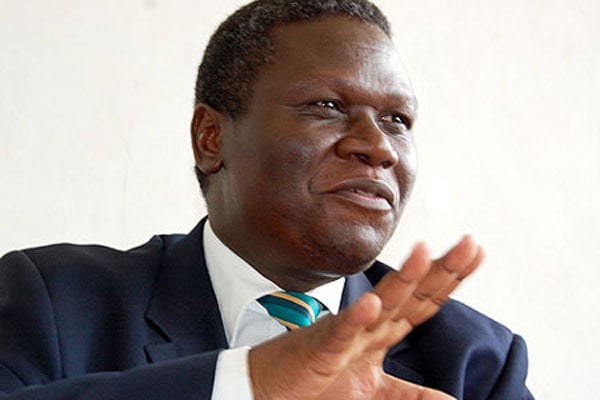One of a kind: Aggrey Awori and his times

Norbert Mao
What you need to know:
- ‘‘Awori will be remembered as a colourful man who lit up the political skies of Uganda”
I first came across the name Aggrey Awori when I was in Senior Three in Namilyango College. There was a young man who was from Aggrey Awori’s family. That connection alone earned him the awe of other students. Awori was in the inner circles of president Milton Obote as ambassador extraordinary and plenipotentiary.
This put him at the rank of a Cabinet minister, being a diplomatic minister of the highest rank with treaty-signing powers and one often sent on special missions. Aggrey Awori often hinted on the many high-level and top secret missions he undertook on behalf of the Uganda government. Awori was a custodian of many sensitive State secrets which he has chosen to take to his grave.
In the sixth and seventh parliaments I was in the backbench with Awori. He took me under his wings and mentored me in the art and science of power politics. Awori always knew that power exists formally and also informally. The nuts and bolts of power are fastened somewhere in a country’s body politic and to get anything done or even to be noticed and heard one had to know where those nuts and bolts were.
A few weeks after I was sworn in, Awori approached me and told me that he and Zachary Olum had drafted a motion asking Parliament to set up a select committee to inquire into the war in northern Uganda with a view to making findings why it was not ending and to make recommendation towards a resolution of the unending conflict. I saw the draft motion and immediately agreed to support it.
When the motion was tabled it met with vigorous resistance from the government side. Many thought the passage of the motion would amount to a vote of no confidence in the government. At that time we were in a so-called no party “Movement System” where candidates for elective office were voted based purely on their individual merit. The truth, however, is that there was a clear line between those of us who believed that multipartism should be restored because the Movement System was a one party system in disguise.
That motion was seen as a motion pushed by multipartists to discredit Movementists! With the motion thus tainted with partisan sentiments it was about to be dead on arrival. The government would not budge and neither would the movers of the motion.
Those of us who had hope that the passage of the motion would give Parliament a handle on one of the most intractable conflicts in Africa were getting disappointed. Some of us were so disappointed by the callous attitude of the opponents of the motion that we even thought northern Uganda is better off seceding from Uganda - if we can’t live in the same country within a common border maybe we shall be better off being neighbours.
Then the Speaker recognised Nyabushozi MP Elly Karuhanga. Karuhanga said he had consulted the Prime Minister and that in order to save the essence of the motion he wanted to request the Speaker to suspend the House for 15 minutes to allow the movers of the motion consult and strike a compromise. The Speaker, James Wapakhabulo, agreed.
When the House resumed, Elly Karuhanga announced that the government side and the movers of the motion had agreed that the movers of the motion would not insist on a select committee but would agree that the same task be assigned to a sessional committee, particularly the Committee on Defence and Internal Affairs. That was one of the best compromises ever struck on the floor of Parliament.
I wasn’t a member of that sessional committee but I quickly applied and joined it. Awori was a strong supporter of our campaign for a peaceful resolution of the conflict. He also helped the committee with critical contacts of exiled former military officers and political leaders.
Awori will be remembered as a colourful man who lit up the political skies of Uganda. A jolly ever smiling man with a mischievous twinkle in his eye, he exuded wit in all his statements. He embodied a youthful energy in all he did. I visited him a few times in his minister’s office and at his country home after he left Parliament. Even in his late 70s and in semi-retirement he was always plotting the “next move”.




